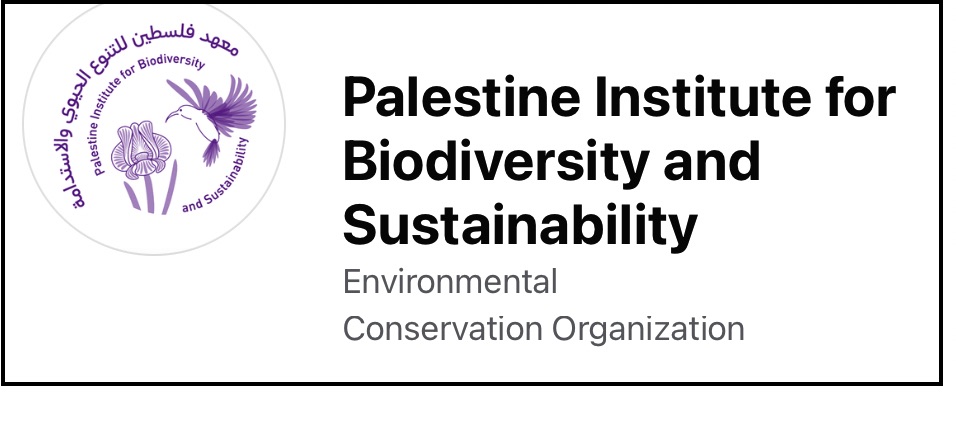. . SUSTAINABLE DEVELOPMENT . .
An post from the Facebook page of the Palestine Institute for Biodiversity and Sustainability
A few days ago we were sent a message about the failure of political leaders to change the catastrophic situation we are facing for our planet. One can attest to many things: 85% of the world’s wetlands lost, 50% of reefs died since 1950 (14% since 2010), a third of forests disappeared, and a 15% increase in the global consumption of individual materials since 1980, and bees decreased 40% (the bees) Crops Which depend on insects for vaccination is 36% of the world crops), humans were less than 1% of the breast biological mass and now humans and our hybrid animals have become 96% of the mammals biocals and soon there will be more plastic than fish in the planet’s water
This is the time for work. This is the time to re-imagine, re-create and restore….

1) We held a workshop to launch work on the National Biodiversity Strategy and Work Plan (NBSAP) for Palestine. This is based on our work on the National Biodiversity Report of the Diversity Agreement (posted here. ). Director General of Natural Resources in the Environment Quality Authority, Dr. Issa Adwan, opened the workshop, who pointed out that the national strategy for biodiversity contributes to supporting Palestine commitments globally and locally to a healthy planet even in the face of colonial occupation.
(Article continued in the right side of the page)
If we can connect up the planet through Internet, can’t we agree to preserve the planet?
(Article continued from the left side of the page)
Professor Mazen presented a presentation on the mechanism of building strategies and national work plans for biodiversity including examples of strategies for other countries. Mr. Mohammed Mohasna, Director of Biodiversity Management in Environmental Quality Authority, presented the roles of stakeholders including organizing a weekly workshop on key topics every Thursday 11 am Palestine Time for the next six months. The meeting is here – in two parts (Let us know if you would like to participate and/or help in this crucial project).
2) Participate in Rotary meetings for Palestine and House of Meat to plan more service projects. Rotary puts the global environment in its top five priorities
3) Participating in a workshop on gas species management (this in addition to climate change and habitat destruction are the three most negative issues affecting biodiversity)
4) Participating in a workshop on preserving biodiversity in developing countries (speakers from 10 countries).
5) We presented many seminars to students and others from Palestine and the world on areas ranging from human rights to mitigate and adapt to climate change.
6) Through the project “Unity and Diversity in Nature and Society” funded by the EU Peace Building Initiative we organized in cooperation with the Directorate of Education in Bethlehem a training workshop for teachers on biodiversity in Palestine
7) With the same funding, we organized Thursday students’ visit to the museum and parks and learned about the importance of preserving biodiversity. We’re getting a mobile education unit this week to provide conservation efforts for remote communities.
This is the time for work. This is the right time…. Join us.
Email info@palestinenature.org